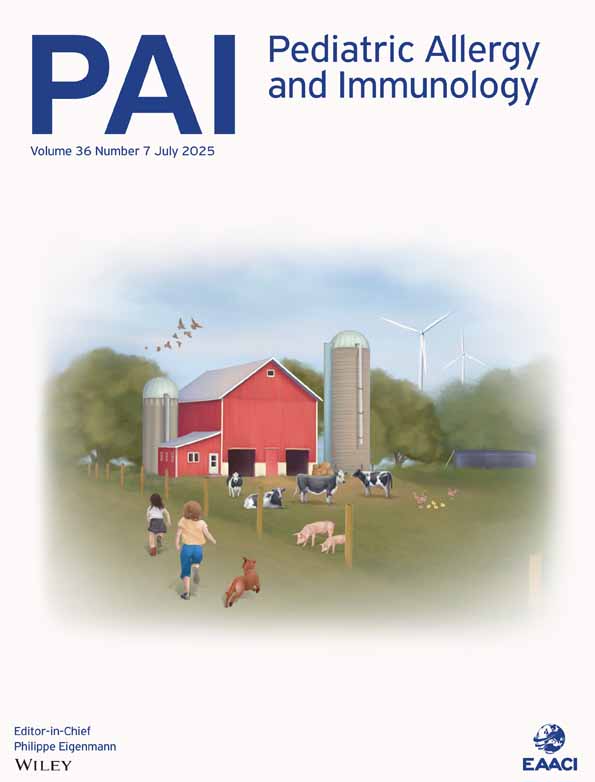Early life factors related to clinical manifestations of atopic disease but not to skin-prick test positivity in young children
Abstract
The relative influence of early life events in the development of IgE-mediated allergy is still undetermined. We investigated early life factors in relation to skin-prick test positivity (SPT) and clinical manifestations of atopic disease in a population-based sample of 201 Italian children (3 months−5 years), after considering their interactions with known determinants of allergy. Among them, 143 children had SPT performed to common allergens. Threatened abortions, general anesthesia at delivery, prematurity, birthweight < 2500 g, maternal smoking, dampness and gas heating exposure were all significantly related to an increased risk of frequent rhinitis in the absence of cold (18%). In utero smoking, threatened abortions, fetal health complications, infantile colic, maternal smoking in childhood (satisfactorily correlated with maternal expired CO during the survey) and respiratory infections were all independent determinants of frequent wheezing (23%). Doctor's diagnosis of asthma (3%) was related to in utero smoking, being born in spring, infantile colic and respiratory infections. A simultaneous exposure to in utero smoking and infantile colic put the infants to a fourfold higher risk of frequent wheezing and to a ninefold risk of asthma, respectively. Having a pet and washing blankets at < 60°C were inversely related to frequent wheezing. Data confirmed also that maternal phenotype influences the inheritance of atopic disease. No event, except a low intake of fruit (< 3/week), was significantly associated with positive SPT (20%) or eczema. Besides allergic sensitization, other events, which occur early in life, seem critical to the development of IgE-mediated allergy.




